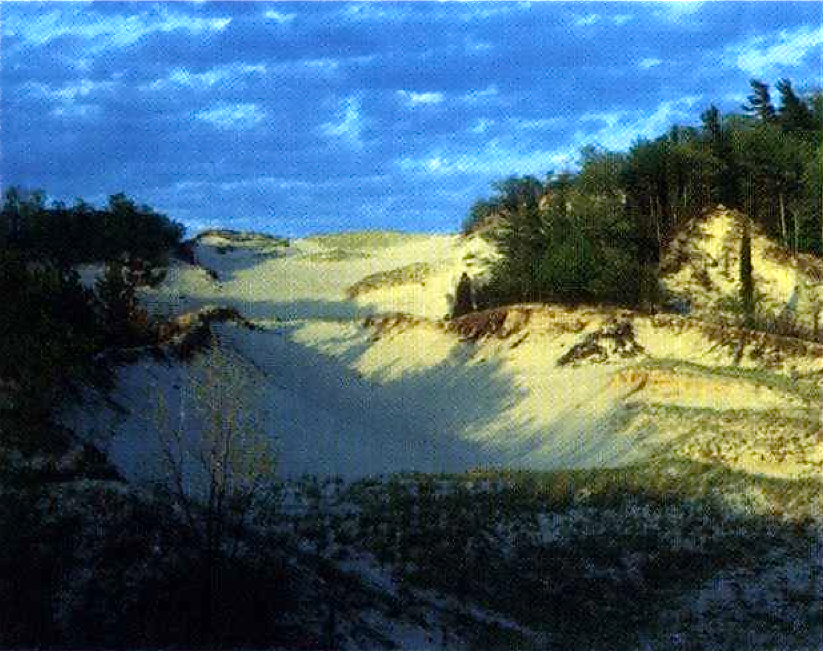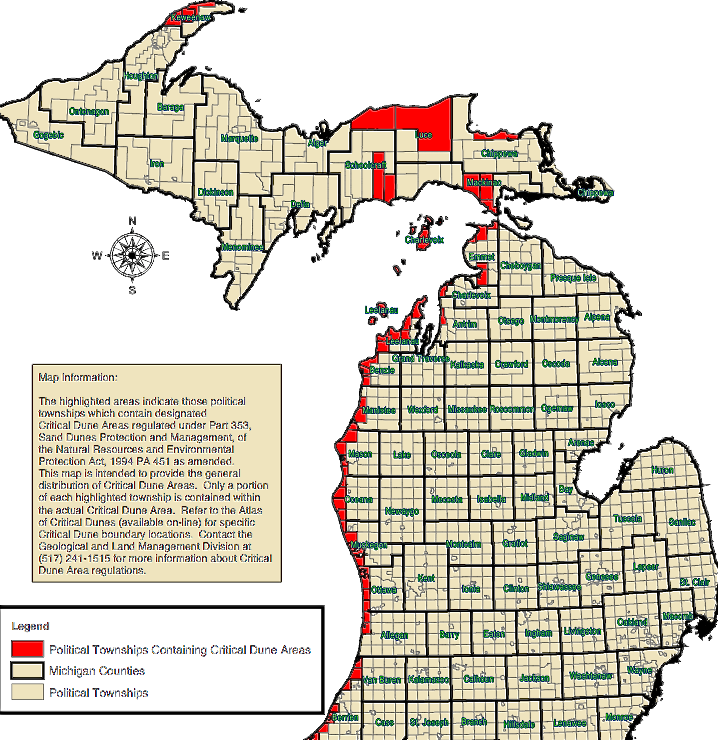
Parabolic dunes are commonly seen along Michigan's west coast. Photo: Michigan.gov.
It would be easier for property owners to build in Lake Michigan and Lake Superior sand dunes under a bill before Michigan lawmakers.
“The main change of this bill is instead of having the default answer be no, which it kind of is right now, we assume that if you buy a piece of land you are allowed to build a house on it,” said Bob DeVries, chief of staff for bill sponsor Sen. Arlan Meekhof, R-West Olive.
The law now leans toward environmental protection. People wanting to build in critical dune areas must prove the construction won’t harm the ecosystem.
The bill shifts the burden of proof from the landowner to the Michigan Department of Environmental Quality. To deny a permit, the regulating agency must show that the construction will cause significant harm.
The bill would also make it harder for residents to request a public hearing before a permit is issued, remove local zoning that is stricter than the state’s and prohibit the denial of a permit for not being in the public interest, according to Jennifer McKay, policy specialist at the Tip of the Mitt Watershed Council, a water protection group out of Petoskey, Mich.
Only people living within a mile of the construction could request a public hearing on a permit. The minimum number of people necessary to request a hearing would increase from two to five under the proposed legislation.
The Realtor Association and the Michigan Association of Home Builders are two major supporters of the bill.
If someone wants to build in a critical dune area now, they need a state permit, said Penny Holt, an environmental quality analyst at the Michigan Department of Environmental Quality. That includes building houses, driveways, garages, septic tanks, water wells, house extensions, adding or removing sand, and anything that requires mechanical equipment.

The political townships containing critical dune areas are highlighted in red. Photo: Michigan.gov.
The proposed bill still requires a permit for most projects, but certain renovation projects and driveway requests would automatically get approved.
The permits are to prevent environmental harm to the dunes from construction. But many developers and landowners consider the extent of that protection to be overreaching.
“You don’t buy an expensive piece of lakefront property with the idea of destroying the environment,” DeVries said. “You buy it because you appreciate it and want to enjoy it.”
Still, the idea of nearly equalizing property rights and environmental protection has many people worried.
“We’re concerned that it will basically allow unrestricted development in the dunes,” said Jennifer McKay, policy specialist at Tip of the Mitt Watershed Council. “It would limit the ability to work with experts to reduce adverse effects to the ecosystems.”
The bill applies to all 70,000 acres of critical dunes in Michigan, approximately 25 percent of all of the state’s dunes. Michigan is the only state in the region with critical dune areas, Holt said.
While some Great Lakes states have dunes, they are state or federally protected. Building in those areas is prohibited.
The Michigan Senate approved the bill on June 6. It will likely be a while until the House considers the bill, DeVries said.
“It’s a piece of legislation we would like to pass sometime this year. We’re not in a hurry.”